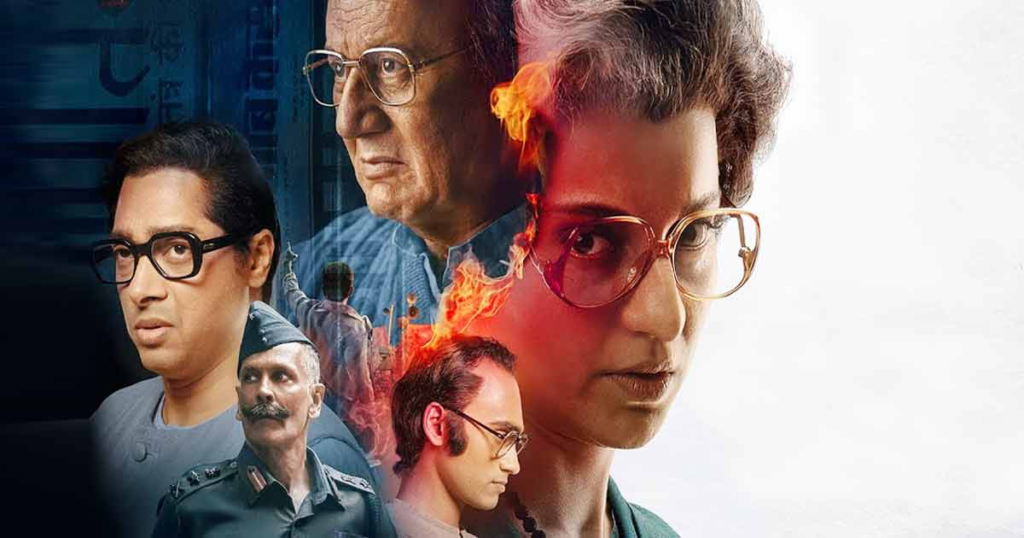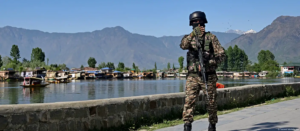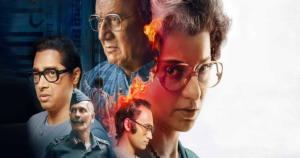The Shadow of Power: Kangana Ranaut’s “Emergency” and the Reckoning with History
Kangana Ranaut’s 2025 film Emergency, now streaming on Netflix, is not merely a historical drama; it’s a potent and often debated cinematic exploration of one of the most controversial periods in India’s post-independence history: the 21-month state of emergency imposed in 1975 by then Prime Minister Indira Gandhi. Directed by and starring Ranaut as the formidable “Iron Lady,” the film attempts to chronicle the events leading up to the Emergency, its impact on civil liberties, and the complex figure at its center. While the film has garnered attention for its ambitious scope and Ranaut’s portrayal, it also invites critical examination regarding its historical accuracy, narrative choices, and overall impact.

Depicting a Tumultuous Era
The film ambitiously tackles a sensitive and politically charged subject. The Emergency saw the suspension of fundamental rights, the curtailment of press freedom, and the detention of political opponents. Ranaut’s Emergency navigates this tumultuous period through the lens of Indira Gandhi’s perspective, attempting to portray her motivations and the pressures she faced. The narrative touches upon the political climate of the time, the Allahabad High Court verdict that invalidated her election, and the subsequent decision to declare a national emergency, citing threats to democracy. The inclusion of key figures like Jayaprakash Narayan (played by Anupam Kher) and Atal Bihari Vajpayee (played by Shreyas Talpade) adds layers to the political drama, showcasing the resistance and opposition that arose during this period.
Kangana Ranaut’s Portrayal of Indira Gandhi
Kangana Ranaut’s performance as Indira Gandhi has been a focal point of discussion. Donning prosthetics to achieve a physical resemblance, she embodies the steely resolve and commanding presence associated with the former Prime Minister. Critics have noted her dedication to the role, acknowledging the effort to capture Gandhi’s mannerisms and speech. However, some reviews suggest that the portrayal occasionally leans towards the theatrical, potentially sacrificing nuance for dramatic effect. The film’s success hinges significantly on the audience’s perception of this central performance and whether it offers a compelling and believable portrayal of such a complex historical figure.
Navigating Historical Accuracy and Bias
Beyond the central performance, Emergency grapples with the challenge of presenting a balanced historical account. Given the contentious nature of the Emergency, any cinematic depiction is bound to face scrutiny regarding its objectivity. Some critics have pointed out that the film appears to favor Indira Gandhi’s perspective, potentially downplaying the extent of the human rights abuses and the erosion of democratic norms during that time. The film’s narrative choices, including its focus on the threats to the nation as perceived by the government, might be interpreted as a justification for the drastic measures taken. This one-sided portrayal has led to debates about the film’s historical accuracy and its potential to sanitize a period marked by significant civil unrest and suppression.
Narrative Structure and Scope
Furthermore, the film’s narrative structure and pacing have also been subjects of discussion. Some reviews suggest that the film attempts to cover a vast and intricate period, potentially leading to a rushed or superficial treatment of certain key events and the long-term consequences of the Emergency. The inclusion of Sanjay Gandhi’s growing influence during this time and controversial programs like forced sterilizations and slum demolitions adds another layer of complexity, but whether the film adequately explores these aspects remains a point of contention.
Reflecting on a Contentious Past
In conclusion, Kangana Ranaut’s Emergency is a significant cinematic undertaking that delves into a crucial and controversial chapter of Indian history. While Ranaut’s portrayal of Indira Gandhi and the film’s ambition to tackle this sensitive subject are noteworthy, the film also faces scrutiny regarding its historical accuracy and potential bias. Ultimately, Emergency serves as a reminder of the importance of critically engaging with historical narratives presented on screen, encouraging viewers to seek diverse perspectives and deepen their understanding of complex historical events and their enduring impact on the present. The film is likely to spark further discussions and reflections on the delicate balance between national security, individual liberties, and the exercise of political power.











